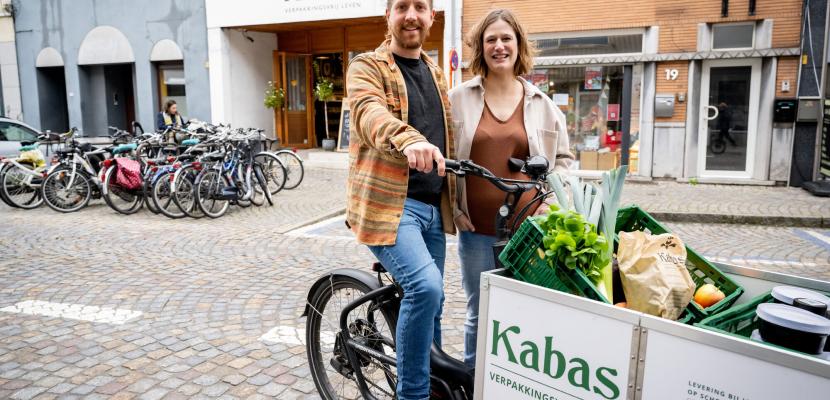
Delivering the future: Mechelen’s cargobike subsidy program.

About this good practice
Context: The EUproject Cyclelogistics analysed the potential of cyclelogistics and this study showed that 32% of all goods can be delivered with a cargobike.
In Mechelen, cargo bike deliveries were not yet widespread. Recognizing the advantages of cargo bikes over vans and trucks, including flexible delivery schedules, increased traffic safety, and zero emissions, Mechelen launched a subsidy program to encourage businesses to adopt cargo bikes.
As an entrepeneur in Mechelen you could apply for a subsidy when buying a cargobike.
The subsidy could only cover half of the spent amount with a limit of 5.000 € .
55 entrepeneurs were subsidised over 4 years.
The description is intentionally broad, encompassing any activity performed with an electric or non-electric cargo bike. Eligible electric bikes must have electric support limited to 25 km/h, excluding electric scooters and speed pedelecs. In essence, any cargo bike, regardless of propulsion method, is eligible for the program.
The delivery by cargobike has to take place within a maximum of 12 months as from the date the application for funding is approved and communicated.
To receive the funding, the applicant has to deliver the following documents at the latest 12 months after the approval:
- invoices or any other financial proof of purchase
- Proof of the n° of deliveries
- An evaluation sheet (incl. reached results, …)
- The address and activity of the company has to realized in the city of Mechelen.
Expert opinion
Resources needed
2018 : 33.764 €
2019: 25.696 €
2020: 23.878 €
2021: 15.000 €
This is the subsidy budget. It decreased year after year, because the market of cargobikes became more mature and is in less need of subsidy. We always had applications enough.
Evidence of success
This was a good practice to encourage cyclelogistics. The initiative received 55 applications, all of which were rewarded with a subsidy. Increased cargo bike use on the streets of Mechelen further suggests the initiative's success. In theory this represents 2% of all goods deliveries in the city. So there is still a lot of potential (cfr: 32%)
Potential for learning or transfer
The initiative successfully boosted the use of cargo bikes, showcasing their potential to cut emissions and alleviate traffic congestion. However, challenges remain in securing political backing, funding, and convincing entrepreneurs to embrace cargo bikes. Despite these obstacles, the success in Mechelen—marked by higher cargo bike adoption and reduced reliance on polluting vehicles—provides strong evidence to support the cause. This model can be replicated in other regions by aligning political will and financial resources, potentially starting with a pilot program. It is evident that regions implementing this approach can significantly lower CO2 emissions and ease traffic congestion by transitioning urban deliveries to sustainable transportation options.
Associated challenges are:
- Persuade the political level of the need
- Find the needed budget
- Persuade entrepreneurs in your city (people mostly don’t like change)

